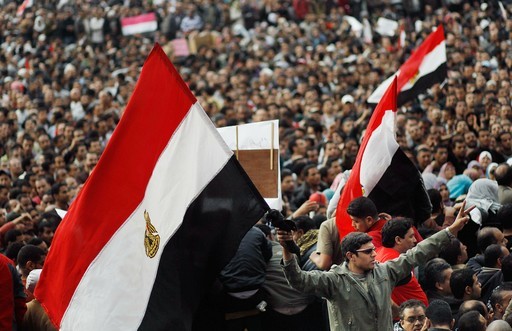CAIRO: Six human rights organizations refused to meet with deputy Prime Minister for Political Development and Democratic Transition Aly El-Selmi to discuss guidelines for choosing the constituent assembly that will draft the constitution following elections.
“We have found that the government holds meetings when it wants the support of civil society and rights organizations against political powers, however, when we call for a meeting to discuss issues such as the law for non-governmental organizations or reforming the Ministry of Interior, they refuse,” said Gamal Eid, executive director of the Arabic Network for Human Rights Information (ANHRI), one of the six groups.
“We refuse to be used by the government and the military council that runs it,” he added.
El-Selmi’s proposed charter of constitutional principles has triggered condemnation for the powers it gives the Supreme Council of the Armed Forces (SCAF), overriding an elected government.
According to the proposed charter, the new parliament will elect the 100-member constituent assembly, which will consist of 80 members from outside the parliament and 20 elected MPs reflecting the percentage of seats won by their parties.
However, SCAF has the power to veto any article it deems contradictory to the principles of previous constitutions and the interim constitutional declaration instated on March 30, 2011. SCAF would then refer the contentious article to the Supreme Constitutional Court for a final decision.
In case the assembly fails to draft the constitution within the set six-month timeframe, SCAF will have the power to dissolve it and appoint a new assembly.
ANHRI, the Nadeem Center for Psychological Rehabilitation of Victims of Violence and Torture, Hisham Mubarak Law Center, the Egyptian Center for Economic and Social Rights, the Egyptian Initiative for Personal Rights and the Association for Freedom of Thought and Expression released a joint statement refusing to attend meetings they say only aim to improve the image of a complicit government and a repressive military council.
The rights groups have also rejected any similar meetings until “tangible evidence of the respect to the dignity and rights of the Egyptian people” is given by SCAF and the government, explaining that thousands of people were referred to unjust military trials as well as the rising incidence of torture with impunity.
In addition, they reject the “malicious” defamation campaign against civil society groups, which they believe is retaliation “for their alignment with the dignity and rights of Egyptians,” the statement said.
The rights organizations explained that they have previously met with officials, however, the recommendations and results of the meetings are never implemented.
“It started to seem as an attempt to delude the public opinion and the Egyptian citizens into thinking that the government and the Military Council are in continuous dialogue, or are listening to the points of view of writers, representatives of political forces, and civil society figures, in order to legitimize certain practices that are mostly contrary to what has been agreed upon in these meetings,” they said in the statement.
El-Selmi has been under scrutiny in the past couple of weeks as a result of his proposed charter which became known as the “El-Selmi Document.”
